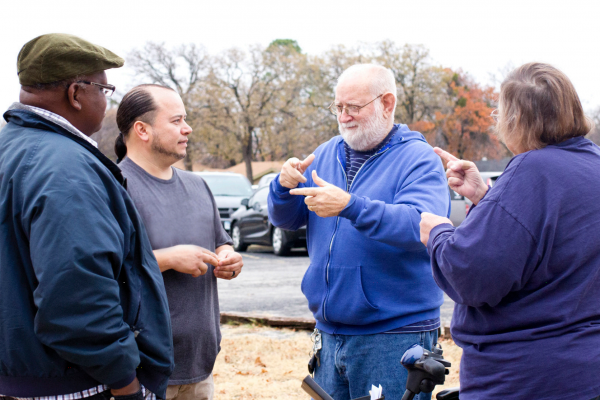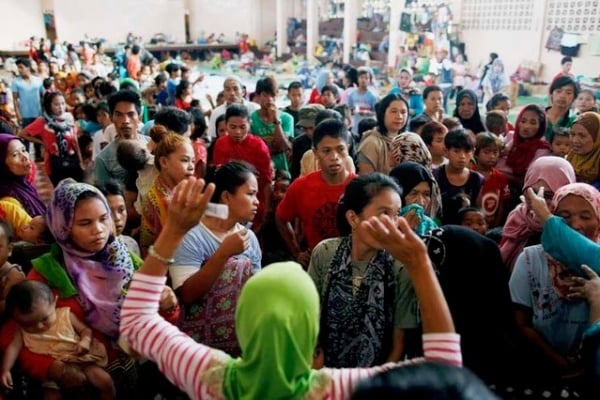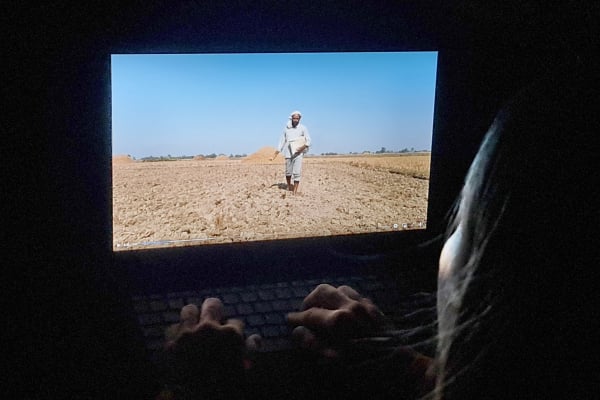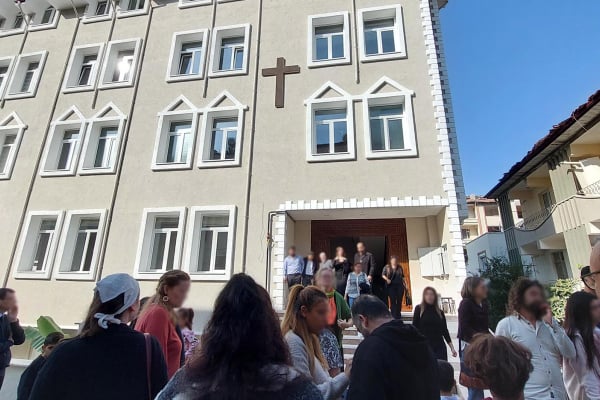
Prayer: Our Greatest Task in Mobilization
By Dr. Steve Coffey, Director of Christar U.S.
Originally published in Evangelical Missions Quarterly Vol. 54, No. 3. Used with permission.
A few years ago, my daughter texted me while she and her husband were traveling and praying about their future. She asked, “Dad, why does Christar require one hundred daily prayer partners for those who are serving long term?”
I was pleased with her question on several levels. First, they were prayerfully considering what future life and ministry options were available to them. Second, they were not just accepting an organizational requirement without seeking to understand it first.
My response was twofold. First, I did not (and still do not) know the origin of the number of one hundred daily prayer partners. Why not fifty? Why not seventy-five? There is nothing magical about the number one hundred. Second, I told her what I consider to be one of the most important biblical reasons for seeking daily prayer partners.
In Exodus 17:8–13, we read that the Amalekites came to fight against the Israelites at Rephidim. Moses told Joshua to choose men and go out to fight them. Instead of going into battle with the men, Moses went on the top of the hill (along with Aaron and Hur) with the staff of God in his hand. In verse 11 we read that “whenever Moses held up his hand, Israel prevailed, and whenever he lowered his hand, Amalek prevailed.”
Holding your arms up for an extended period of time is tiresome for anyone and holding up the staff of the Lord did not make it lighter. Moses’ arms grew weary. Aaron and Hur, being the proactive aides that they were, found a stone for Moses to sit on and they held up his arms—until the setting of the sun. The conclusion? “Joshua overwhelmed Amalek and his people with the sword” (v. 13).
I have heard this passage referred to on numerous occasions in reference to the importance of supporting leaders. I agree with this principle and have experienced it many times personally when colleagues and friends have been supportive when my strength was exhausted.
However, in this passage there is another principle that I believe is even more important: The battle was won that day, not because Joshua and the soldiers were strong in fighting the Amalekites in the valley, but because there was someone standing before God, on their behalf, on the mountain.
That is why we call on and mobilize people to pray! We recognize that the work to which God has called us is one that is not achievable in our own strength. We recognize that we are not sufficient. We understand that the spiritual nature of our work requires an army of believers who stand before God on our behalf, trusting Him to accomplish His work in us and through us.
We join with Paul in boldly inviting men and women to join in the work of calling men and women to faith in Jesus.
- Paul asked the believers in Rome to strive together with him in prayer for his deliverance from unbelievers and service to the believers in Jerusalem. (Romans 15:30–31)
- Paul instructed the believers in Corinth to help him “by prayer,” which would provoke thanksgiving for many because of the blessings that came through their prayers. (2 Corinthians 1:10–11)
- Paul asked the believers at Ephesus to pray for boldness and wisdom in his preaching. (Ephesians 6:19–20)
- Paul asked the believers at Colossae to pray for open doors to preach. (Colossians 4:3–4)
The response to such an appeal is varied. There are those who would rather give financially than to commit to praying daily. There are others who gladly accept such a call to join in the work through persevering intercession. We praise God for the tens of thousands of people who do, in fact, pray daily for Christar workers around the world.
Some have asked, “Do people keep their commitment to pray daily?” That is a valid question, prompted no doubt by our own prayer practices. I would not suggest that every person who makes such a commitment keeps it perfectly. That said, I could recount numerous stories to the contrary.
On our second furlough trip to the U.S., we sat at the table for a Sunday lunch after sharing in a supporting church in Rhode Island. The lady of the house began asking about, by name, various people that we were privileged to serve in France. I responded in surprise that she knew the names of our friends. She said, “Of course I do. I pray for you every day, and I was so thrilled to receive your letter last May about ‘Fatima.’” I asked her what we had said in that letter. She recounted how during the month of April, God had impressed on her to pray every day for fruit in our ministry. She then described her joy in reading our May prayer letter that recounted how Fatima had placed her faith in Jesus in April!
A couple years ago we visited a prayer partner in Pennsylvania. During the conversation he went to his office and came back out with a picture he had printed from one of our emails and asked, “How is little Maggie? I pray for her every day.” My wife and I almost began crying on the spot—Maggie is our granddaughter. Not only are we privileged to benefit from the daily prayers of others, so are our children and now our grandchildren!
So how do we mobilize one hundred daily prayer partners?
- Pray God will raise them up.
- Continually seek opportunities to communicate the vision and burden that God has put in our heart.
- Ask, What did God do to bring me to this time and place? What are we trusting Him to do through us? With whom? Where? Doing what?
- Invite those who are interested in this ministry to share this with their friends who may have a similar burden.
- Communicate. Communicate. Communicate. Did I say communicate? One of the most painful things I have been told (one time is too many, but it has not been only one time) is: “I used to pray for _____, but I got tired of praying the same generic ‘God bless ___ and ___ today, in whatever they are doing’ because I never heard from them.” We are in a spiritual battle and God is prompting others to join us in this battle through prayer. We have a spiritual obligation to communicate with them about the things that we are doing and what we are asking God to do.
- Provide ways to remind people to pray. One person provided prayer points to put onto a mirror when his prayer partners are getting ready for the day. Another provided a toothbrush to every daily prayer partner—we all brush our teeth daily (don’t we?). One of my co-workers says, “We give our partners 15 requests that will be prayed for four times in two months. It is also opportunity to update them on answers to prayer.”
When we moved to Dallas a few years ago, I began participating in the “Cross-Cultural Partners” team in our local church. It was my joy to be asked to connect with a couple that the church supports who serve in the Far East (not with Christar). When they returned to visit on furlough, I was privileged to have a meal with them and to find out the motivation behind their weekly emails. They shared how they had learned of Christar’s requirement of one hundred daily prayer partners when he was in seminary and liked it so much that they committed to raising up the same. They did so and communicate each Monday with fresh updates. Praise God!
Friends, the task is too big, the obstacles are too large, the opportunities are too abundant and the consequences are too important to not invest as eagerly and deliberately in mobilizing prayer support as we do in financial support. Let us seek out a host of people who, like Epaphras, are “always struggling on your behalf in his prayers, that you may stand mature and fully assured in all the will of God” (Colossians 4:12).









































_1724957011_600x400.png)
